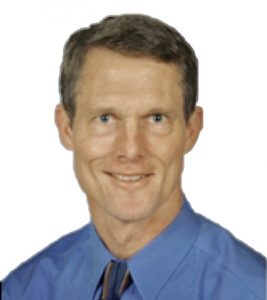Karl Kieburtz, M.D.
Dr. Karl Kieburtz MD MPH is the Robert J Joynt Professor in Neurology and the Director of the Clinical & Translational Science Institute and also the Director of the Center for Human Experimental Therapeutics at the University of Rochester Medical Center in Rochester, NY. He also has appointments as Professor of Environmental Medicine and of Public Health Sciences, and serves as Senior Associate Dean for Clinical Research.
His research career has focused on developing treatments for diseases with high unmet therapeutic needs, including HIV-related neurologic syndromes and neurodegenerative disorders, such as Alzheimer and Parkinson disease. His research program has had continuous independent funding from the National Institutes of Health for over 20 years and he has served as the principal investigator on over two dozen multi-center clinical trials. His research papers have been cited by others over 10,000 times, according to the Web of Science, and his h-factor is over 50.
He has served as a consultant to the United States government through the FDA (serving on and chairing the Peripheral and Central Nervous System Advisory Committee), Veterans Administration (chairing the Scientific Evaluation Committee for the Cooperative Studies Program) and the National Institute of Neurologic Disorders and Stroke (serving on the clinical trials study section). He has served as an officer or board member for multiple international professional organizations including the American Neurological Association, the American Society for Experimental Therapeutics and the Movement Disorders Society, and has served as Associate Editor of the journals Neurology and Movement Disorders.
As the Director Clinical & Translational Science Institute he helps institutional investigators translate their clinical and bench-based research findings into potential human therapeutic agents.
For his roles as an educator he has received the University of Rochester Medical Center’s highest mentoring awards as well as a K24 award from the NIH for mentoring junior faculty. He also maintains an active clinical practice in neurology, primarily seeing patients with neurodegenerative disorders.

